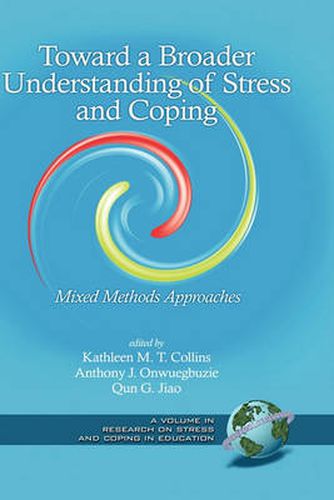Readings Newsletter
Become a Readings Member to make your shopping experience even easier.
Sign in or sign up for free!
You’re not far away from qualifying for FREE standard shipping within Australia
You’ve qualified for FREE standard shipping within Australia
The cart is loading…






This title is printed to order. This book may have been self-published. If so, we cannot guarantee the quality of the content. In the main most books will have gone through the editing process however some may not. We therefore suggest that you be aware of this before ordering this book. If in doubt check either the author or publisher’s details as we are unable to accept any returns unless they are faulty. Please contact us if you have any questions.
Research on stress and coping phenomena has been among the most widely studied topics in social and behavioral sciences during the past several decades. Notwithstanding, the authors in this book have expanded the base of stress and coping research by providing a valuable reference source that includes guidelines and frameworks as well as empirical findings related to the application of mixed methods approaches to the study of stress and coping. This book is intended not only for stress and coping researchers, but also for social and behavioral science researchers at various levels-from students, instructors, and advisors to applied researchers, research methodologists, and theorists. The 15 chapters are divided into three distinct sections. The five chapters in Section I focus mainly on topics pertaining to the conceptual and theoretical aspects of mixed methods research in the study of stress and coping. The five chapters in Section II address the major methodological issues of mixed methods research. Section III presents five empirical studies of mixed methods research as applied to the field of stress and coping. This book illustrates the perspectives of innovative interconnections in the application of mixed methods research to the study of stress and coping. It also provides readers with new ways of designing and evaluating strategies and programs that aim to reduce stress and improve coping mechanisms.
$9.00 standard shipping within Australia
FREE standard shipping within Australia for orders over $100.00
Express & International shipping calculated at checkout
This title is printed to order. This book may have been self-published. If so, we cannot guarantee the quality of the content. In the main most books will have gone through the editing process however some may not. We therefore suggest that you be aware of this before ordering this book. If in doubt check either the author or publisher’s details as we are unable to accept any returns unless they are faulty. Please contact us if you have any questions.
Research on stress and coping phenomena has been among the most widely studied topics in social and behavioral sciences during the past several decades. Notwithstanding, the authors in this book have expanded the base of stress and coping research by providing a valuable reference source that includes guidelines and frameworks as well as empirical findings related to the application of mixed methods approaches to the study of stress and coping. This book is intended not only for stress and coping researchers, but also for social and behavioral science researchers at various levels-from students, instructors, and advisors to applied researchers, research methodologists, and theorists. The 15 chapters are divided into three distinct sections. The five chapters in Section I focus mainly on topics pertaining to the conceptual and theoretical aspects of mixed methods research in the study of stress and coping. The five chapters in Section II address the major methodological issues of mixed methods research. Section III presents five empirical studies of mixed methods research as applied to the field of stress and coping. This book illustrates the perspectives of innovative interconnections in the application of mixed methods research to the study of stress and coping. It also provides readers with new ways of designing and evaluating strategies and programs that aim to reduce stress and improve coping mechanisms.